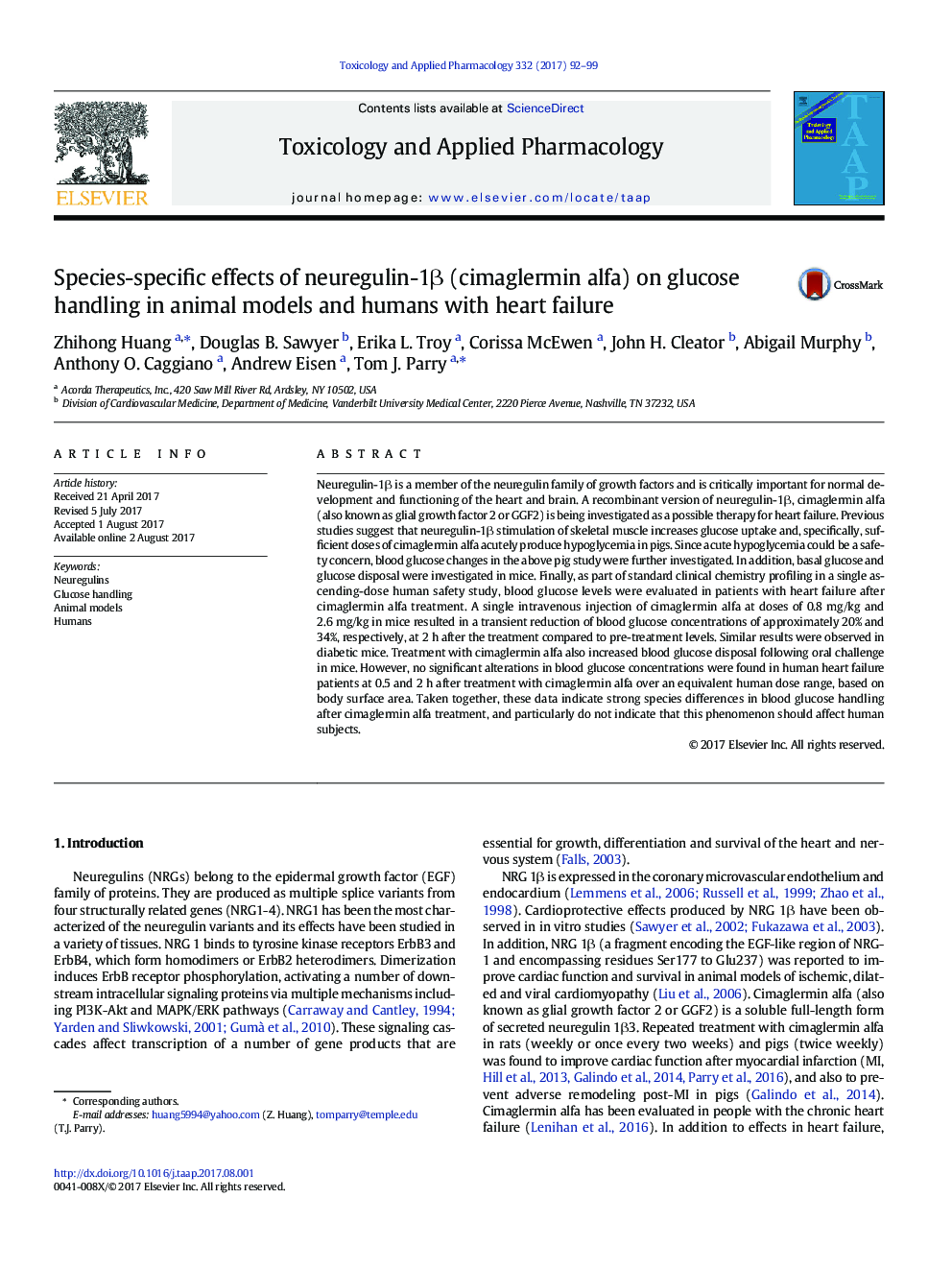| Article ID | Journal | Published Year | Pages | File Type |
|---|---|---|---|---|
| 5558395 | Toxicology and Applied Pharmacology | 2017 | 8 Pages |
â¢Cimaglermin alfa acutely reduced blood glucose levels in pigs, less so in mice.â¢Cimaglermin alfa did not reduce blood glucose levels in heart failure patients.â¢Effects of cimaglermin alfa on blood glucose regulation are species-dependent.
Neuregulin-1β is a member of the neuregulin family of growth factors and is critically important for normal development and functioning of the heart and brain. A recombinant version of neuregulin-1β, cimaglermin alfa (also known as glial growth factor 2 or GGF2) is being investigated as a possible therapy for heart failure. Previous studies suggest that neuregulin-1β stimulation of skeletal muscle increases glucose uptake and, specifically, sufficient doses of cimaglermin alfa acutely produce hypoglycemia in pigs. Since acute hypoglycemia could be a safety concern, blood glucose changes in the above pig study were further investigated. In addition, basal glucose and glucose disposal were investigated in mice. Finally, as part of standard clinical chemistry profiling in a single ascending-dose human safety study, blood glucose levels were evaluated in patients with heart failure after cimaglermin alfa treatment. A single intravenous injection of cimaglermin alfa at doses of 0.8 mg/kg and 2.6 mg/kg in mice resulted in a transient reduction of blood glucose concentrations of approximately 20% and 34%, respectively, at 2 h after the treatment compared to pre-treatment levels. Similar results were observed in diabetic mice. Treatment with cimaglermin alfa also increased blood glucose disposal following oral challenge in mice. However, no significant alterations in blood glucose concentrations were found in human heart failure patients at 0.5 and 2 h after treatment with cimaglermin alfa over an equivalent human dose range, based on body surface area. Taken together, these data indicate strong species differences in blood glucose handling after cimaglermin alfa treatment, and particularly do not indicate that this phenomenon should affect human subjects.
